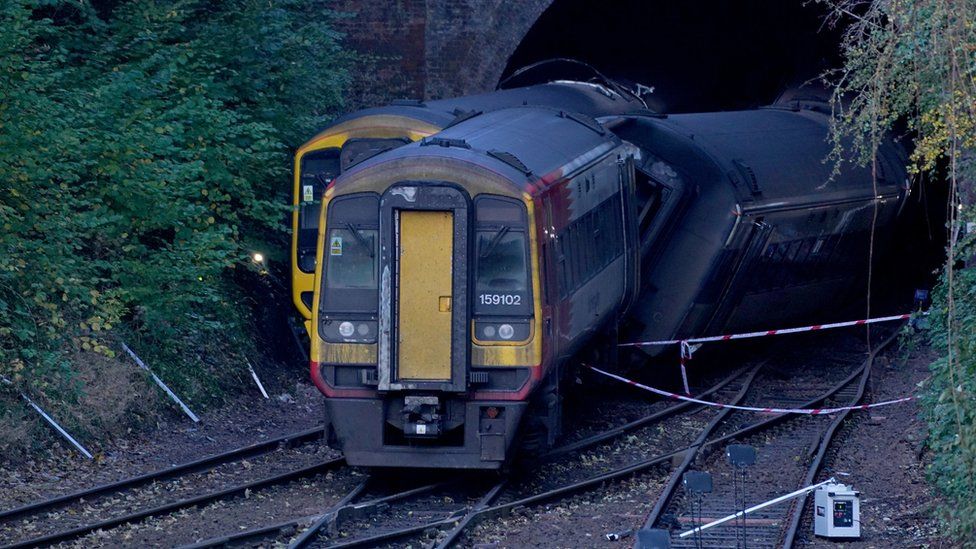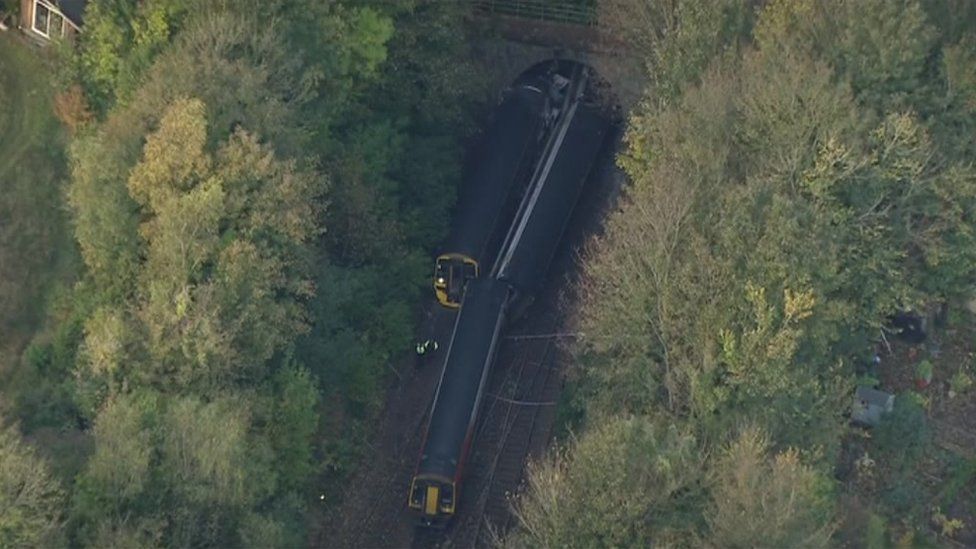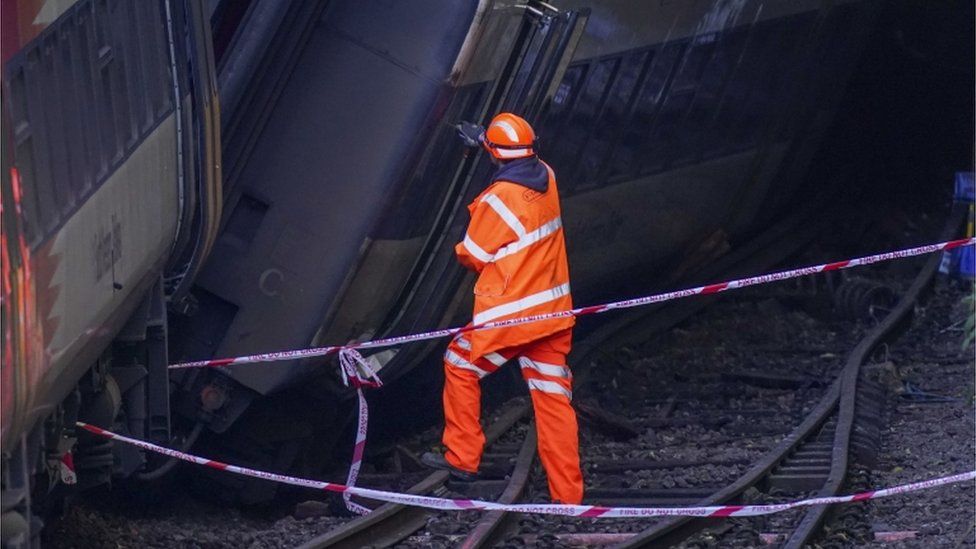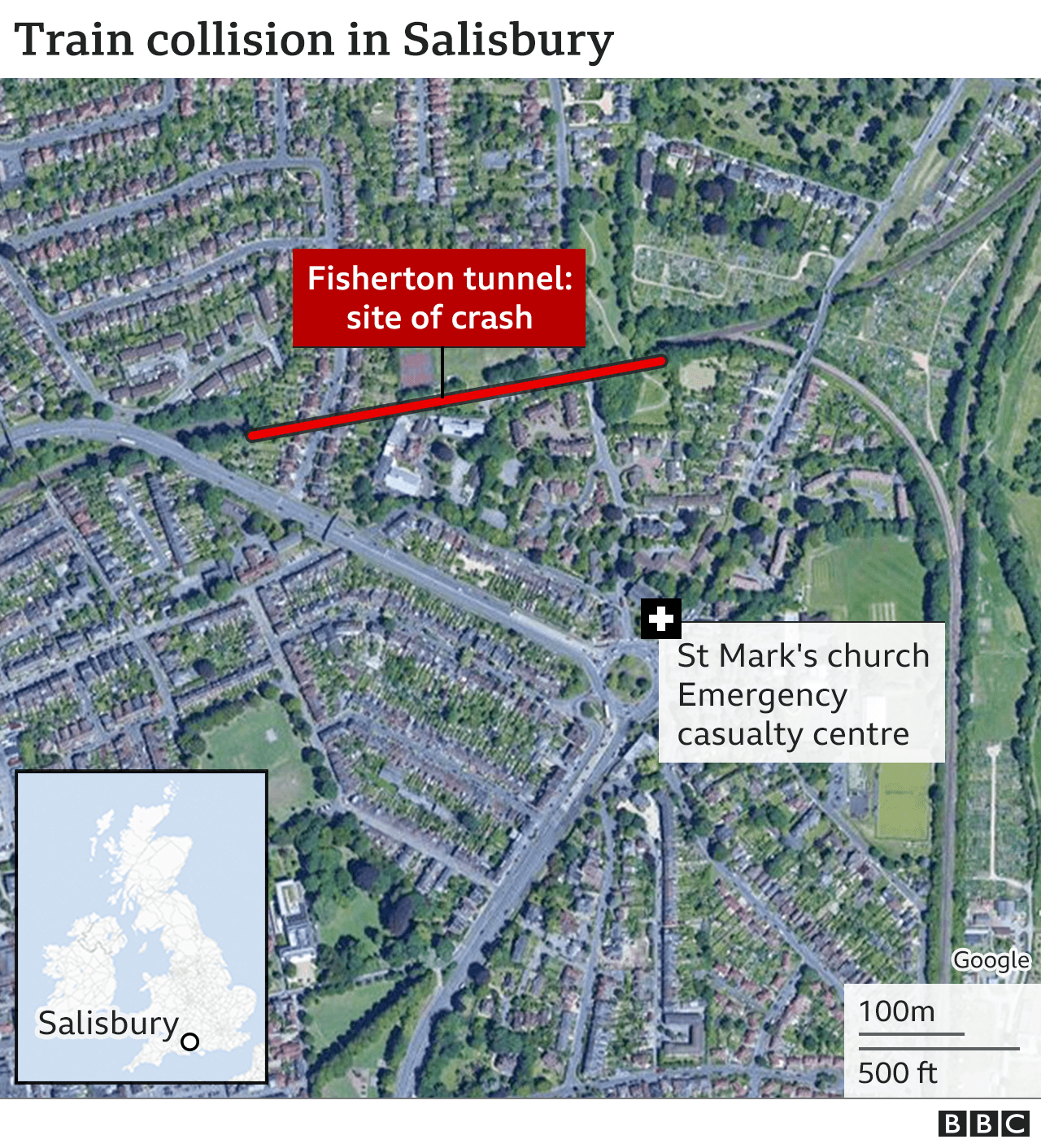
Work to remove wreckage at the scene of the Salisbury train crash is due to begin.
Two trains collided on Sunday after one ran through a red light because of a "wheel slide".
The South Western Railway (SWR) service hit a Great Western service at the entrance to Fisherton Tunnel.
Network Rail said it would bring in cranes to lift the wreckage, BBC South Transport Correspondent Paul Clifton said.
A preliminary investigation said the Great Western Railway (GWR) service should have been protected by a red light at the junction before the tunnel. But the SWR train went through the red after "low adhesion" caused it to slip through.
The driver of the SWR service, a 75-year-old who is believed to have suffered "life-changing" injuries, did apply the brakes, investigators say.
He has been driving services in the area for around 50 years and SWR described him as a "deeply-respected colleague" with an "excellent professional track record".
"Initial findings indicate that the driver acted in an impeccable way in a valiant attempt to keep his passengers safe, staying at the controls throughout.
"We thank him for his actions and we wish him a speedy recovery as he continues to be treated in hospital," SWR said in a statement.

It added that it hoped the early assessment by the Rail Accident Investigation Branch (RAIB), showing that the driver reacted correctly to the signals, would help "stop speculation".
The SWR train was running from London to Honiton, in Devon, while the GWR service was travelling from Southampton to Cardiff when they collided at the tunnel.
Both trains had passed a Y-shaped junction, close to the entrance of the tunnel, before the collision.
Investigators said further results would be made public later in the week.

The crash has caused major disruption, with lines through the city expected to remain closed until at least the end of Monday.
Of the 92 passengers on board the two trains, 14 required hospital treatment, with most suffering minor injuries.
The Rail Delivery Group said low adhesion can be caused by "moisture on the rail mixing with the film produced by 'leaves on the line' or other contaminants, such as rust or grease."
They add the problem can be worse in autumn and that "it can also cause safety risks, such as signals passed at danger and station overruns".


Follow BBC West on Facebook, Twitter and Instagram. Send your story ideas to: bristol@bbc.co.uk
Related Internet Links
https://news.google.com/__i/rss/rd/articles/CBMiOGh0dHBzOi8vd3d3LmJiYy5jby51ay9uZXdzL3VrLWVuZ2xhbmQtd2lsdHNoaXJlLTU5MTQzMDIx0gE8aHR0cHM6Ly93d3cuYmJjLmNvLnVrL25ld3MvdWstZW5nbGFuZC13aWx0c2hpcmUtNTkxNDMwMjEuYW1w?oc=5
2021-11-03 07:48:08Z
CBMiOGh0dHBzOi8vd3d3LmJiYy5jby51ay9uZXdzL3VrLWVuZ2xhbmQtd2lsdHNoaXJlLTU5MTQzMDIx0gE8aHR0cHM6Ly93d3cuYmJjLmNvLnVrL25ld3MvdWstZW5nbGFuZC13aWx0c2hpcmUtNTkxNDMwMjEuYW1w
Tidak ada komentar:
Posting Komentar